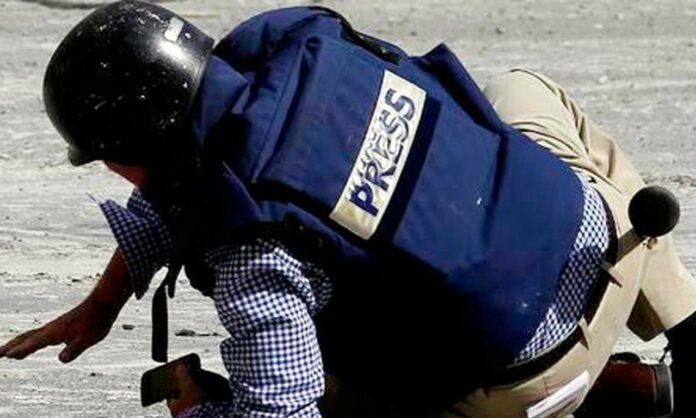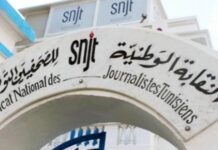June 9, 2021
Attacks against journalists continue to rise in recent months, with 13 attacks against journalists and photojournalists during the month of May, according to a report by the Monitoring Unit of the Professional Safety Center of the National Syndicate of Tunisian Journalists.
The union also indicated in its monthly report issued today, Wednesday, June 9, 2021, that the rate of these attacks continues to rise compared to April 2021.
The unit received 20 notifications of a case of assault through direct contacts, monitoring on social networks and media outlets, or through field inspections.
The Syndicate recorded the highest rates of attacks against journalists during the first three months of 2021, as that period recorded 75 out of 204 attacks, that is 37 percent of the total attacks.
The significant development in the number of attacks is due to the renewal of social mobility because of the deepening of the Covid-19 crisis and the severity of political tensions during the recent period, the main victims of which were journalists and photojournalists.
The Security Forces are at the Forefront of Attacking Journalists
On May 3, 2021, the Tunisian Journalists Syndicate announced that it had recorded 206 attacks on press freedom during the year, the highest rate in the past three years.
Security forces and security unions ranked first in the list of attacks on journalists, which prompted the Journalists Syndicate to include the Ministry of the Interior at the top of the list of enemies of the press for the year 2021, as the attacks varied from assault with extreme violence to arbitrary detention without legal cause, to bullying, incitement, threats and defamation of journalists on the pages of the security unions, in addition to In addition to banning from work and requesting licenses despite presenting a professional journalist’s card. This is according to the Syndicate’s report for the year 2021 on the freedom of press work.
For its part, the National Union of Tunisian Journalists renewed, on Wednesday, June 9, its call to the Ministry of the Interior to seriously investigate “what its agents carried out in arbitrary detention of journalists and the exercise of prior censorship of media content.”
It also called on it to obligate its agents to respect the freedom of journalistic work and to intervene for the benefit of journalists and photographers if they are at risk. The Syndicate of Journalists called on the Supreme Judicial Council to sensitize judges to the danger of referring journalists to the anti-terrorism law, and the danger that poses to freedom of the press and freedom of expression.











